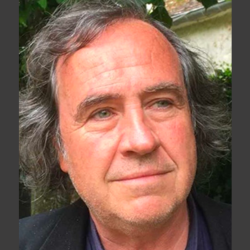The Wall, the Door, the Threshold: Derrida and the Question of Hospitality

When:
Thursday, November 9, 2023
12:30 PM - 2:00 PM CT
Where: Scott Hall, 212, 601 University Place, Evanston, IL 60208 map it
Audience: Faculty/Staff - Graduate Students
Contact:
Ariel Sowers
(847) 491-7454
ariel.sowers@northwestern.edu
Group: Department of Political Science
Sponsor: Alice Kaplan Institute for the Humanities
Category: Academic
Description:
Please join the Political Theory Colloquium as they host Prof. Michael Naas from the DePaul University Department of Philosophy.
This paper aims to give an account of Derrida’s complex, multipronged approach to the question of hospitality in his 1995-1996 seminar devoted to this topic. The paper first takes up Derrida’s attempt to formalize a thinking of hospitality by contrasting a single law of unconditional hospitality with the multiple socio-political laws of a conditional or conditioned hospitality. It then turns to the question of Derrida’s method in treating the theme of hospitality, his unique way of combining classical philosophical sources with examples from literature and, especially, contemporary questions concerning immigrants and refugees in the France and Europe of the mid-1990s. The paper concludes by asking what Derrida’s approach to hospitality tells us about deconstruction more generally and how its thinking of walls, doors, and thresholds, in short, its thinking of limits of all kinds, might inform our own reflections on today’s pressing questions surrounding immigration, asylum, refugees, cities of refuge, and so on.
Michael was educated at The State University of New York at Stony Brook and the Ecole des Hautes Etudes en Sciences Sociales in Paris. He teaches courses in Philosophy and Comparative Literature and conducts research in the areas of ancient Greek philosophy and contemporary French philosophy. His approach to the classics is informed by thinkers such as Nietzsche, Heidegger, Derrida, Lyotard, and Levinas. His recent published work includes co-translations of Jacques Derridas The Other Heading (Indiana, 1992), Memoirs of the Blind (Chicago, 1993), Adieu (Stanford, 1999), Rogues (Stanford, 2004), Learning to Live Finally (Melville, 2007), and Life Death (Chicago, forthcoming 2020). He is co-editor of Jacques Derrida's The Work of Mourning (Chicago, 2000) and Chaque fois unique, la fin du monde (Galilee, 2004), as well as Plato’s Animals: Gadflies, Horses, Swans, and Other Philosophical Beasts (Indiana, 2015). He is the author of Turning: From Persuasion to Philosophy (Humanities, 1994), Taking on the Tradition: Jacques Derrida and the Legacies of Deconstruction (Stanford, 2003), Derrida From Now On (Fordham, 2008), Miracle and Machine: Jacques Derrida and the Two Sources of Religion, Science, and the Media (Fordham, 2012), The End of the World and Other Teachable Moments: Jacques Derrida’s Final Seminar (Fordham, 2015), Plato and the Invention of Life (Fordham, 2018), Derrida in Montreal: A Play in Three Acts (Montreal, 2019) Don DeLillo, American Original: Drugs, Weapons, Erotica, and Other Literary Contraband (Bloomsbury, 2020), Class Acts: Derrida on the Public Stage (Fordham, 2021), Apocalyptic Ruin and Everyday Wonder in Don DeLillo’s America (Bloomsbury, 2022), and Threshold Phenomena: Jacques Derrida and the Question of Hospitality (Fordham, forthcoming).He has also published numerous articles on themes in ancient and contemporary philosophy in such journals as Philosophy Today, Continental Philosophy, Research in Phenomenology, Mosaic, Epoch, and Paragraph. He is also co-editor of The Oxford Literary Review.